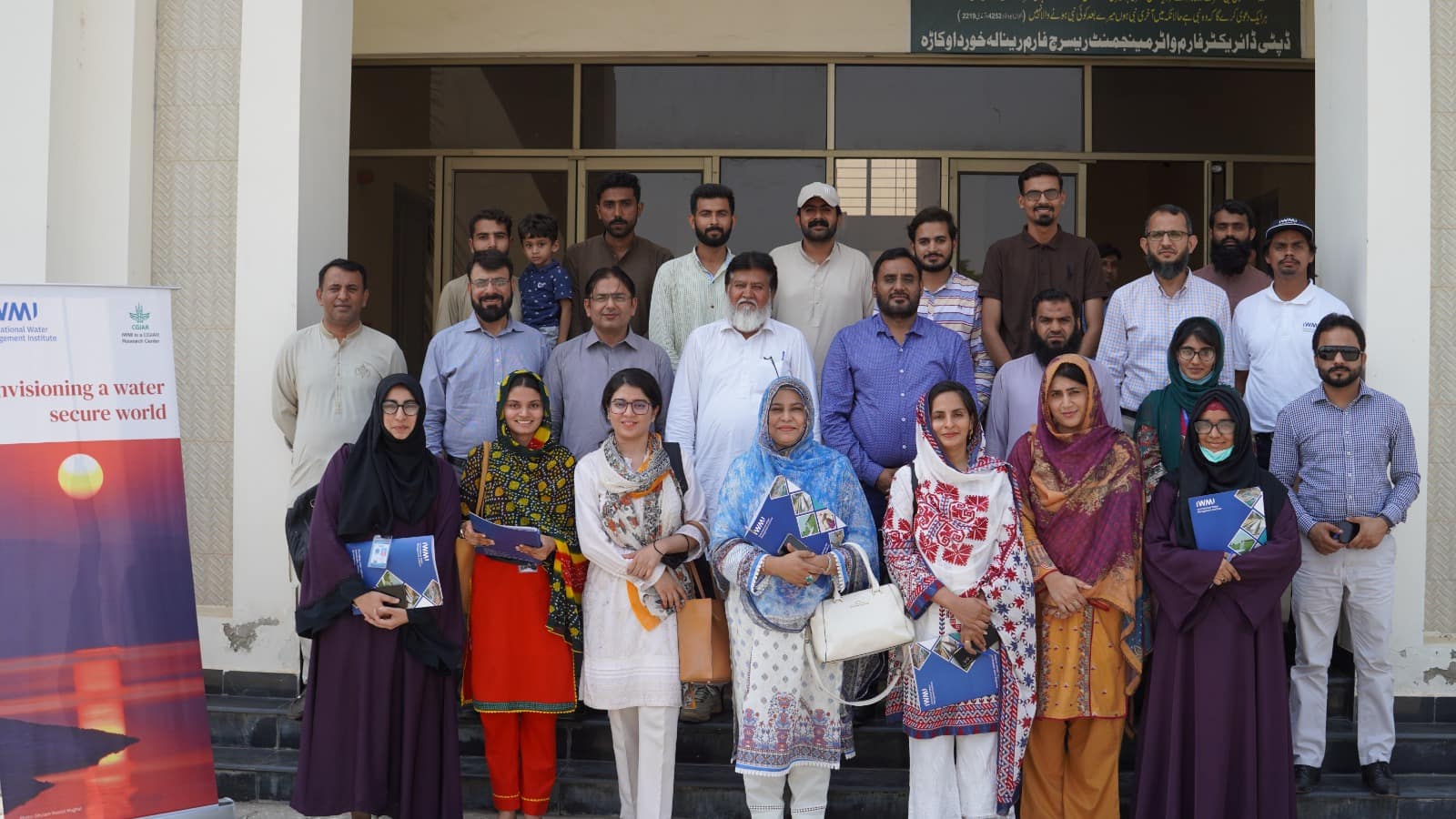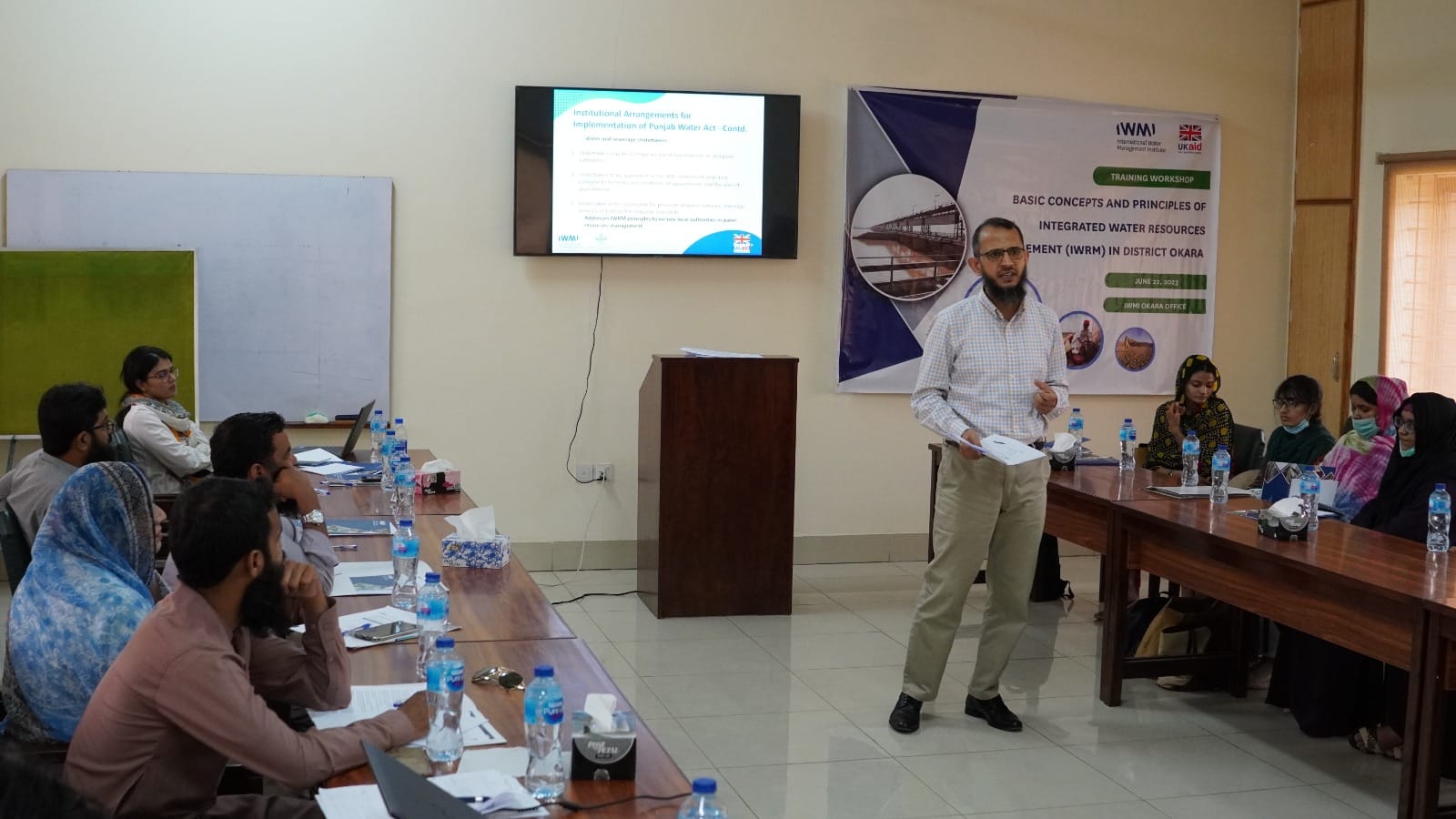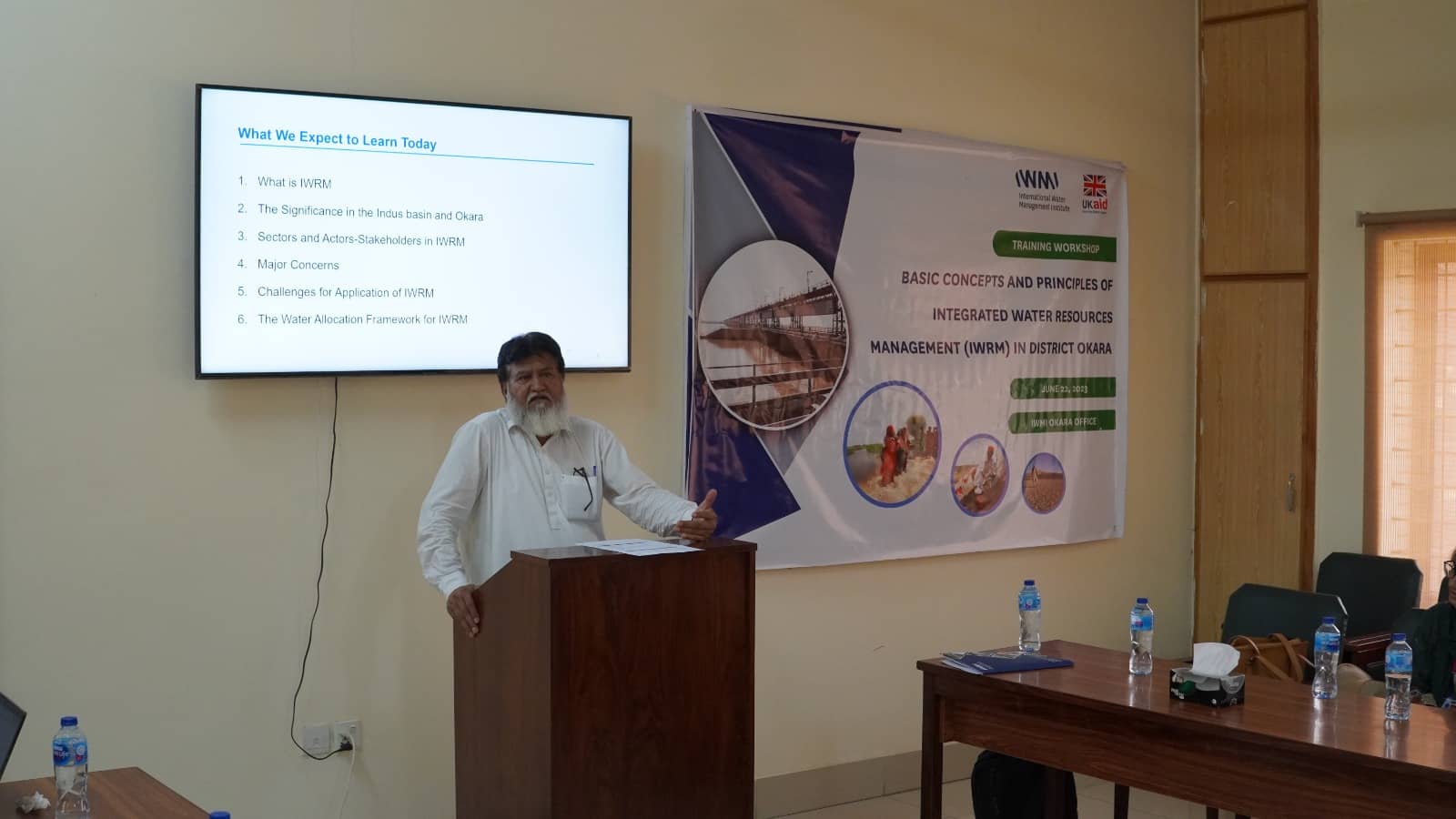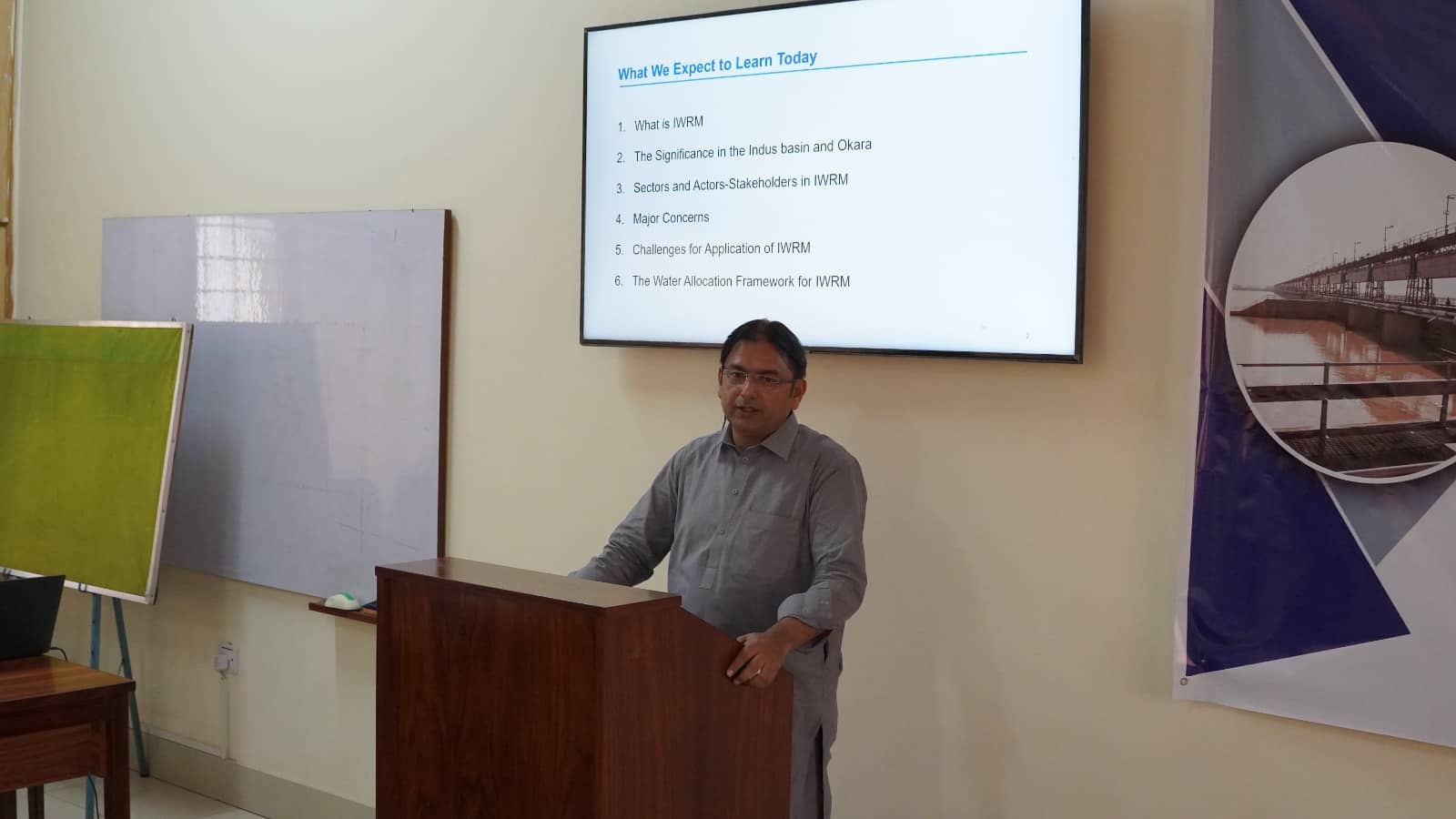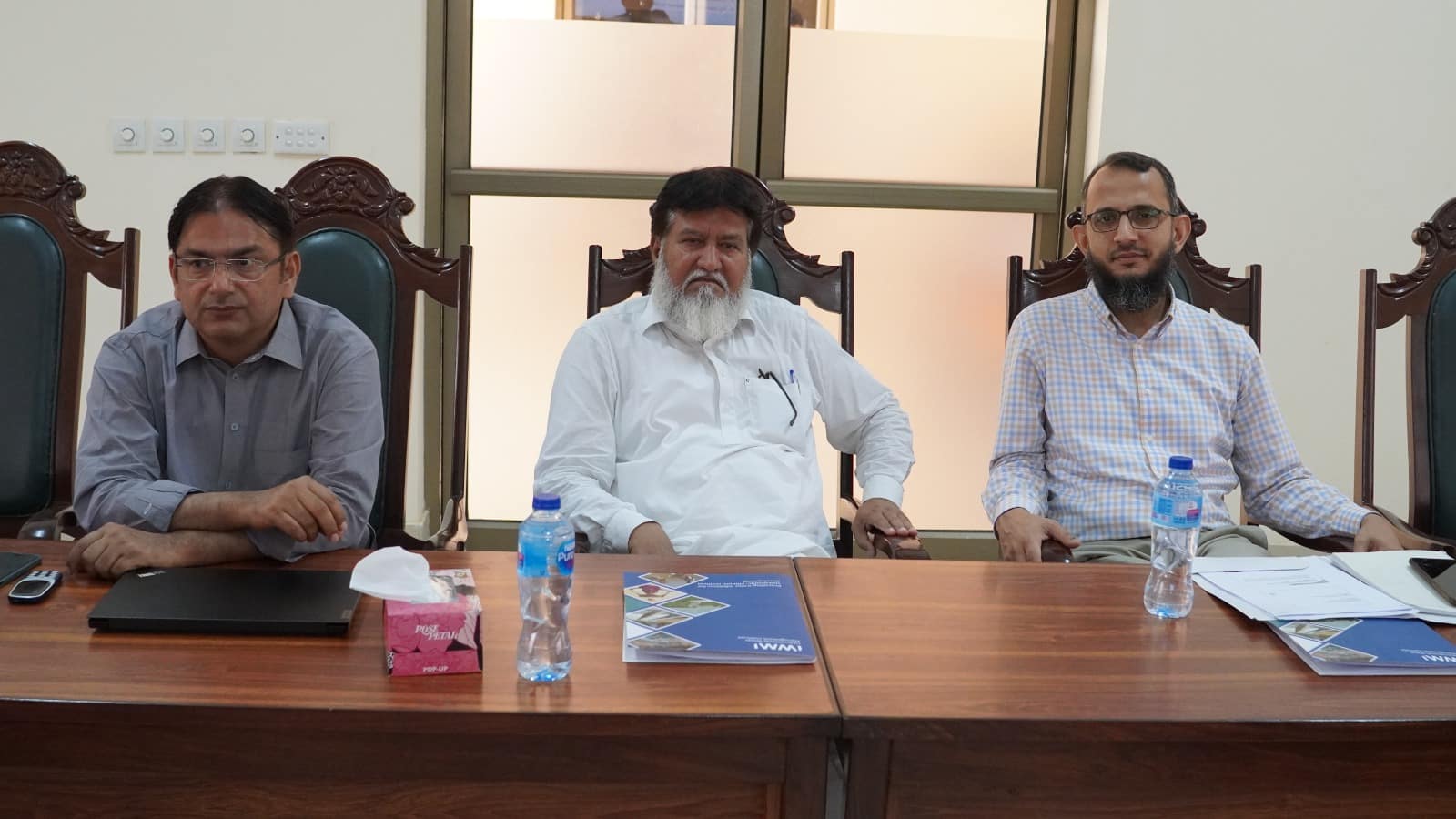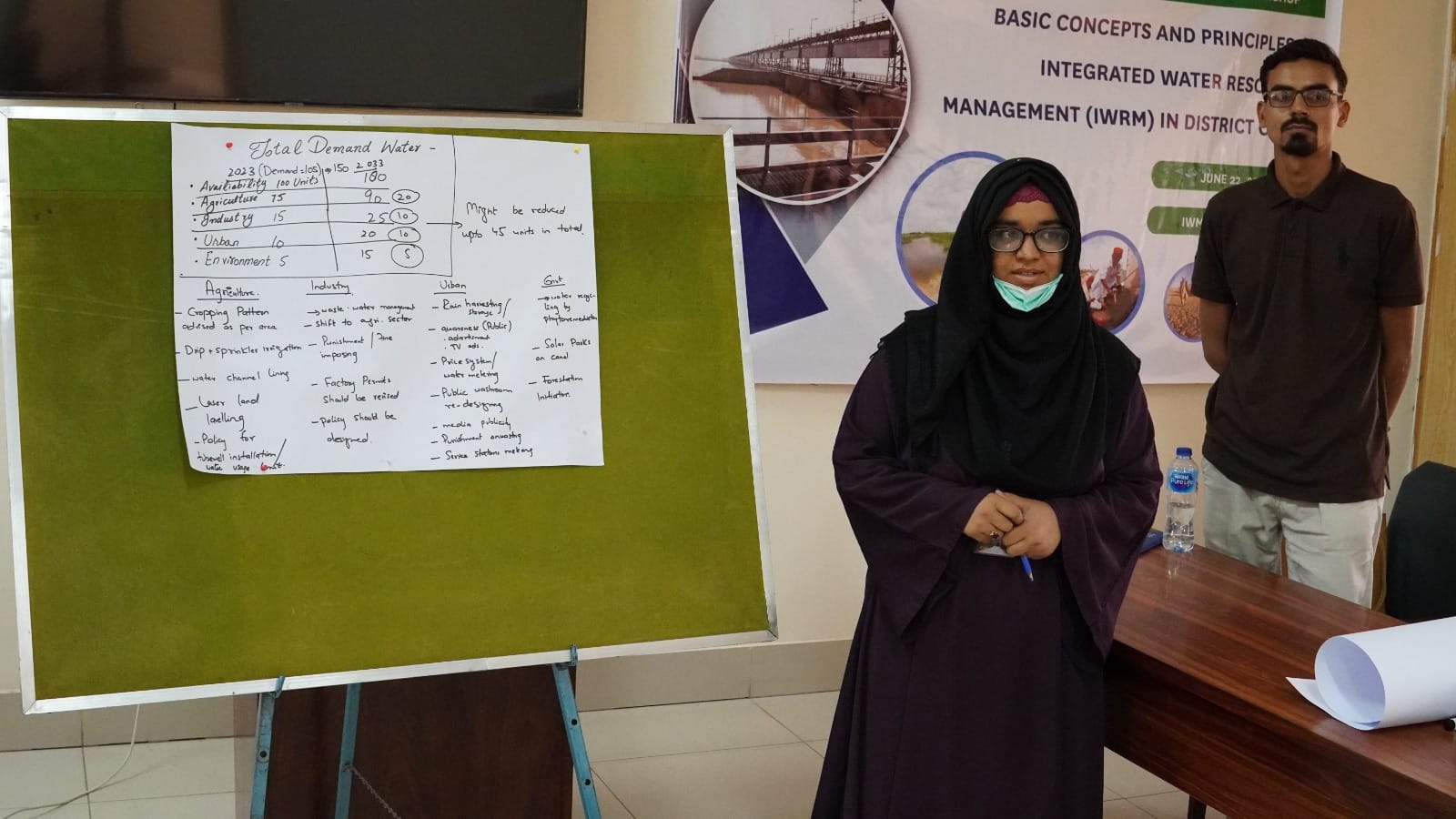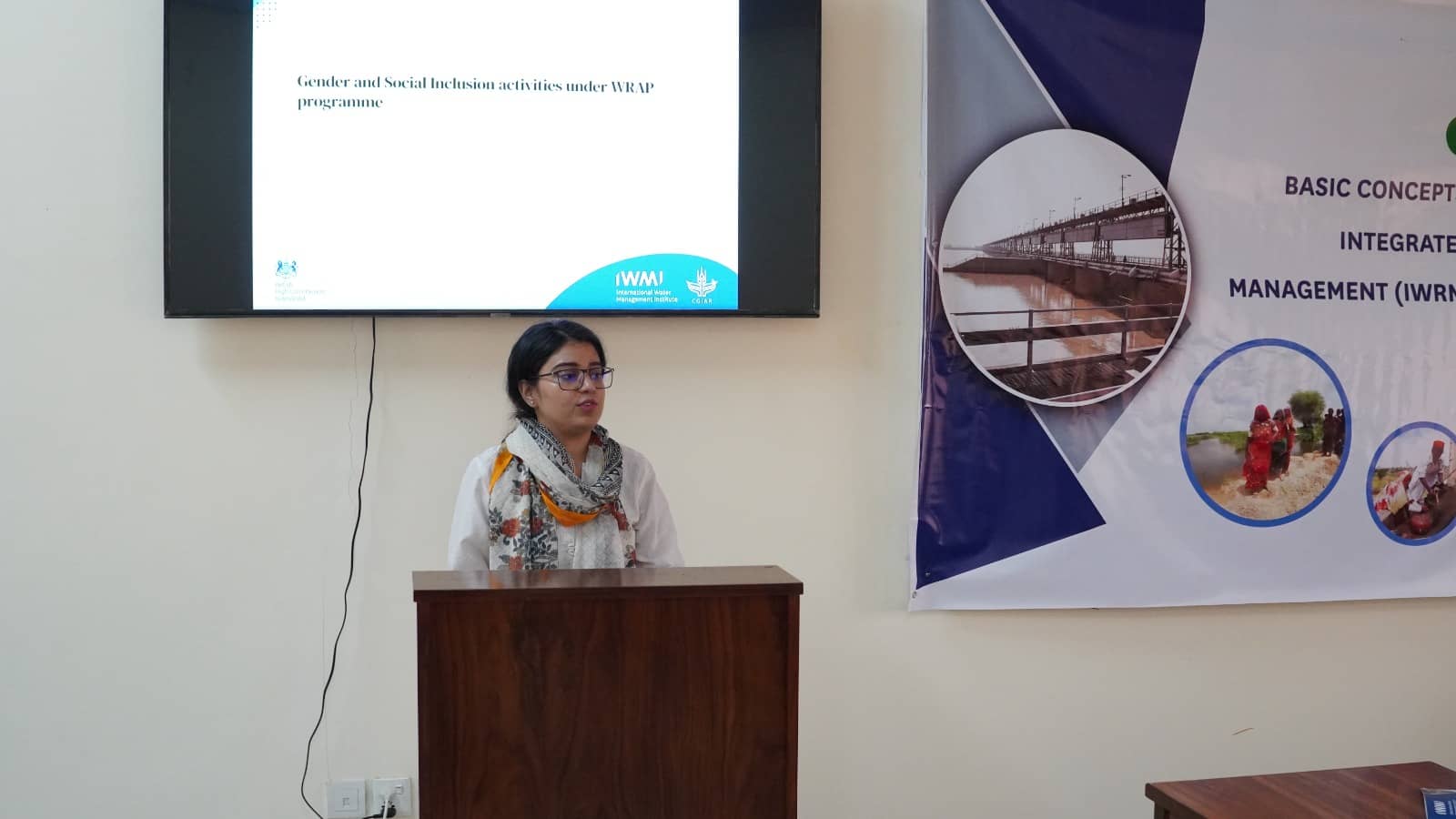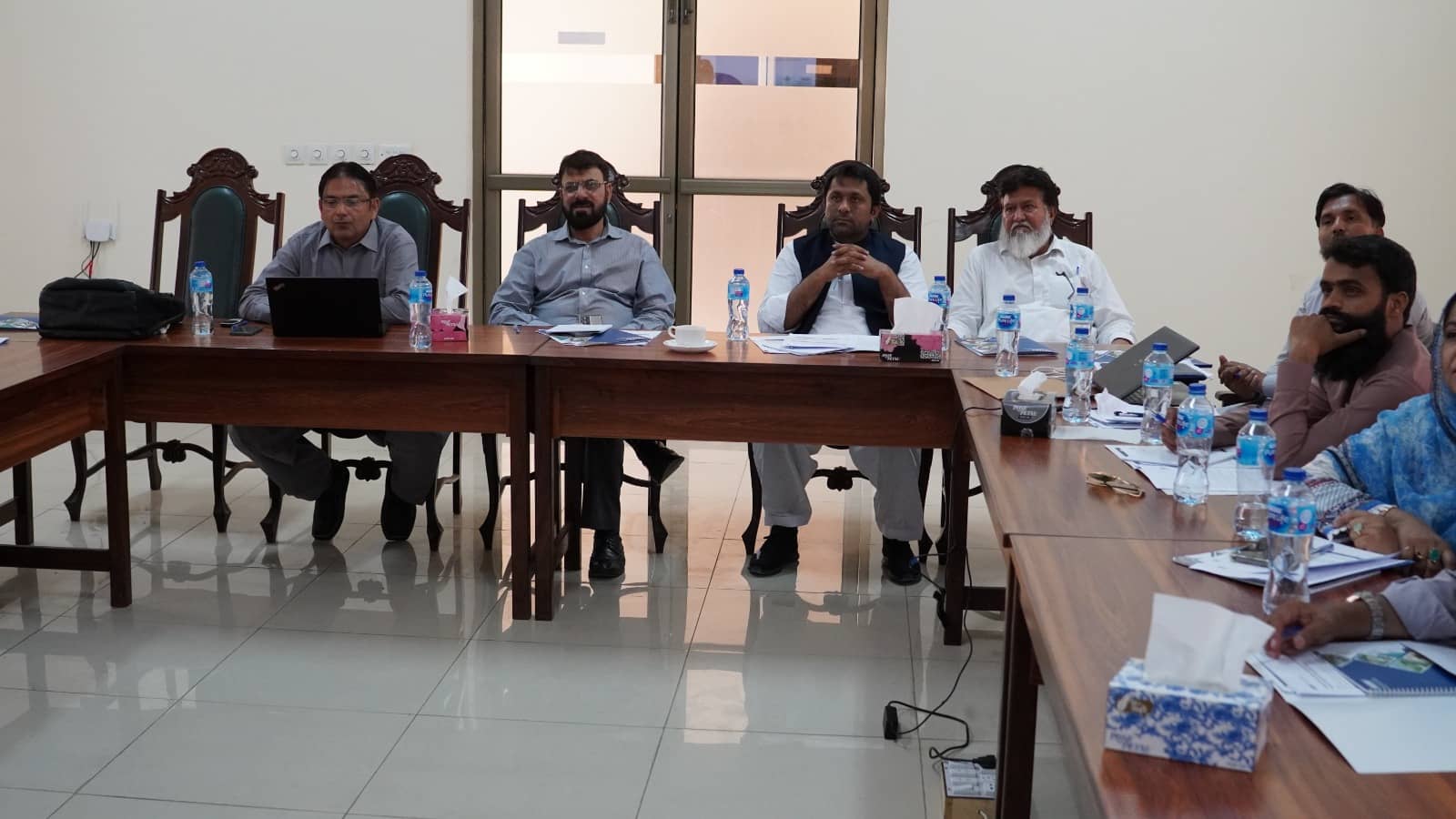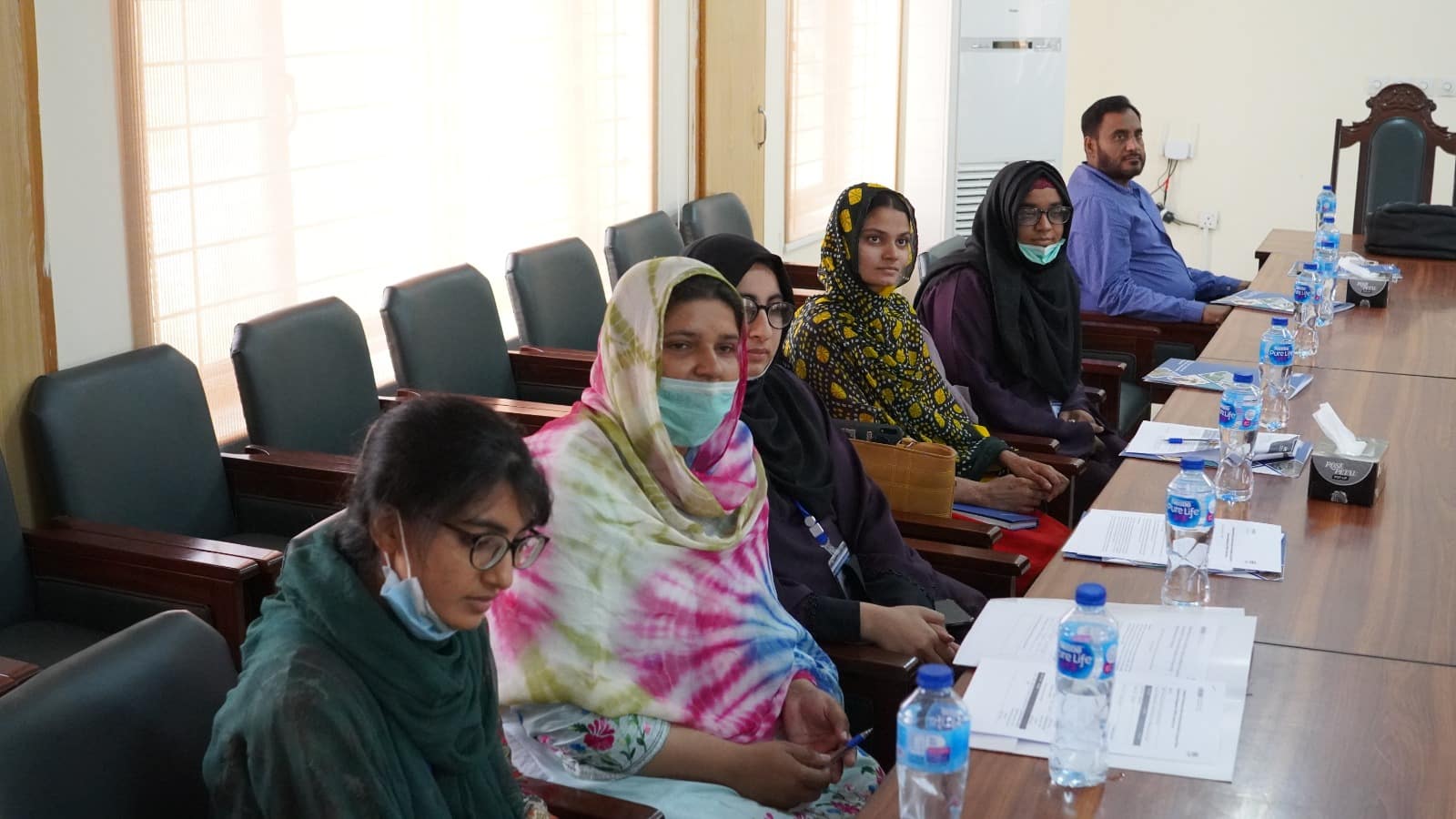Lahore/Okara, Thursday, June 22, 2023: The International Water Management Institute (IWMI) organized a training workshop on “Basic concepts and principles of Integrated Water Resources Management (IWRM)” in Okara district, to build a cadre of mid-career professionals at the district and tehsil level and develop their skills for better water allocation practices, using IWRM approach.
The workshop was attended by representatives from Punjab Irrigation Department (PID), On Farm Water Management (OFWM), Public Health Engineering Department (PHED), Community Development Unit (CDU), Tehsil Municipal Administration (TMA), Local Government department, and academia.
Habib Ullah Habib, Director of OFWM Research Farm (Renala Khurd), OFWM Punjab, gave the welcome note and urged to increase application efficiency of irrigation in agriculture sector using ‘More Crop Per Drop’ approach. According to him, “Due to changes in weather patterns, water availability is becoming unpredictable, leading to over-reliance on groundwater resources. This can have disastrous consequences on future generations, if our groundwater aquifers are exhausted. It is important to use water in agriculture sector wisely using IWRM approach and promote high value crops for greater revenue.”
Jehanzeb Masud Cheema, Researcher – Water Resources Management at IWMI, gave an overview of the UK Aid-funded Water Resource Accountability in Pakistan (WRAP) Programme Component 1: Climate Resilient Solutions for Improving Water Governance (CRS-IWaG).
According to Cheema, “The programme has a special focus on IWRM, so that water resources are sustainably used. The state-of-the-art interventions piloted in Okara district, such as automated soil moisture sensors; Conductivity, Temperature and Depth (CTD) sensors; and Electrical Conductivity (EC) meters, will serve as a demonstration for farmers to enhance uptake and promote water use efficiency.”
Muhammad Arshad, Researcher and IWRM Specialist at IWMI, shared the basic concepts and challenges related to IWRM. He suggested developing an inter-sectoral approach, so that optimal use of water can be ensured, and benefits are maximised.
According to Arshad, “The Indus Basin in Pakistan is under pressure due to population growth, rapidly melting glaciers, changing pattern in river flows, and over abstraction of groundwater. The per capita water availability is declining, and water demand of urban, industrial, and commercial sectors is exceeding safe withdrawal limits. Implementing an IWRM approach can help to sustainably manage our water resources and contribute towards sustainable development. Such trainings at the district and tehsil level will develop capacities of mid-level professionals towards better planning and usage of water under changing climatic conditions and population growth.
Abdur Rehman Cheema, Regional Researcher – Water Governance and Institutional Specialist at IWMI, shared the context of IWRM in the light of National Water Policy 2018 and Punjab Water Act 2019. He informed the workshop participants that Punjab Water Act 2019 provides room for IWRM-driven approach to water, such as avoiding silo approach through an integrated governance structure, regulating over-abstraction of groundwater, and mitigation of climate change impacts. Cheema further said, “Punjab Water Act 2019 needs to be implemented. There is a need for relevant government departments, development sector practitioners, civil society, and academia, to sit together and chalk out the pathway for ensuring the implementation of Punjab Water Act 2019 while leveraging the IWRM approach.”
Hafsa Aeman, Senior Research Officer – Geoinformatics at IWMI, highlighted the importance of Gender Equality and Social Inclusion (GESI) in IWRM. She also informed the participants regarding IWMI’s approach under the WRAP Programme Component 1: CRS-IWaG for ensuring gender inclusion in all activities.
A group discussion on future water allocation in Okara district for agriculture, urban water use, industry, and environment/ecosystems was also held.


